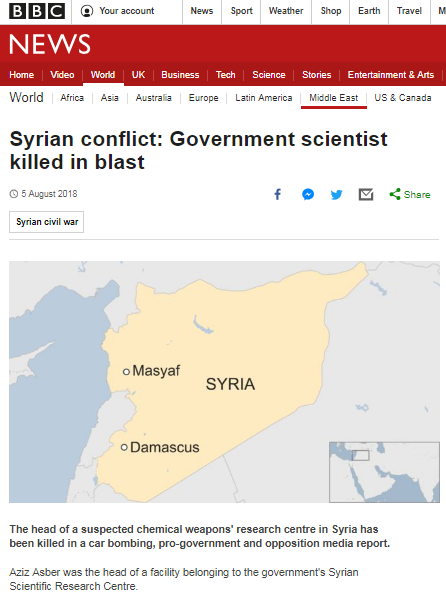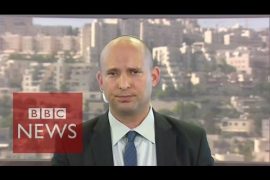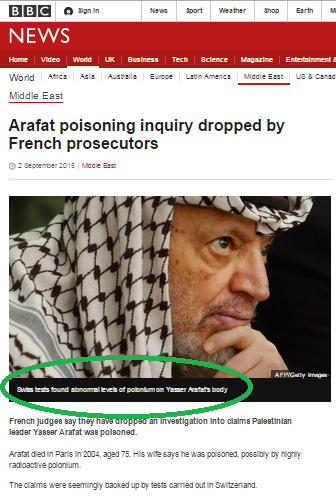On August 5th the BBC News website published a report titled “Syrian conflict: Government scientist killed in blast” on its Middle East page.
Readers of the BBC’s report on that story were told that: [emphasis added]
“The head of a suspected chemical weapons’ research centre in Syria has been killed in a car bombing, pro-government and opposition media report.
Aziz Asber was the head of a facility belonging to the government’s Syrian Scientific Research Centre.
Western intelligence agents have said the organisation is linked to a Syrian chemical weapons programme.
A rebel group said it carried out the attack, but there has been speculation that others could be involved.”
That link leads to a BBC report dating from May 2017 in which audiences were informed that:
“Syria’s government is continuing to make chemical weapons in violation of a 2013 deal to eliminate them, a Western intelligence agency has told the BBC. […]
The intelligence document obtained by the BBC says Syria’s chemical weapons are manufactured at three sites – Masyaf, in Hama province, and at Dummar and Barzeh, both just outside Damascus. All three are branches of the Scientific Studies and Research Centre (SSRC), a government agency, it adds.”
In June of this year the BBC’s Diplomatic correspondent reported that the OPCW (the Organisation for the Prohibition of Chemical Weapons):
“…found sufficient evidence to determine that the Syrian Arab Armed Forces (President Bashar al-Assad’s troops) were responsible for three chemical weapons attacks in 2014 and 2015, and that the Syrian regime was responsible for the Sarin nerve agent attack in April 2017 in Khan Shaykhun.”
Nevertheless, towards the end of this latest report BBC audiences were once again told that: [emphasis added]
“Syria has denied owning or using chemical weapons, but the US and the Syrian opposition accuse the government of carrying out a chemical attack on former opposition stronghold Douma near Damascus that reportedly killed 40 people in April this year.”
It is clearly evident that the Assad regime did not destroy its “entire chemical arsenal” as mandated by UN Security Council resolution 2118 in 2013 and hence does in fact ‘own’ chemical weapons. It is also a fact that the OPCW has determined that the Syrian government’s forces have used chemical weapons on at least four occasions other than the one in Douma in April 2018.
Nevertheless, BBC audiences continue to see false balance in the form of the repeated promotion of inadequately challenged Syrian propaganda that is presumably intended to tick the BBC’s ‘impartiality’ box. In addition to being downright ridiculous, that editorial policy clearly undermines the BBC’s purpose of providing the public with accurate and impartial reporting that enhances its understanding of this issue.
Related Articles:
Why does the BBC describe the Khan Sheikhoun chemical attack as ‘suspected’?
Are BBC audiences getting the full picture on Syria’s chemical weapons?
BBC News amplification of unchallenged Assad propaganda persists
Despite evidence, the BBC won’t let go of Assad propaganda
BBC News website tones down Assad regime propaganda




